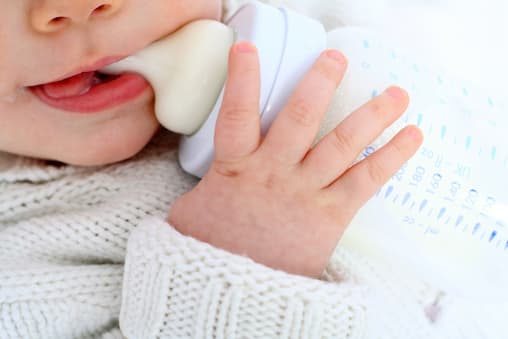Are DHA and ARA Important in Baby Formula?

Question
Does anyone know about the enfamil lipil formula. Is that the one that is best?
Vpdot
Dr. Greene's Answer
Vpdot, You asked the right question! Breastfeeding is magnificent for babies. But In 1996, when my youngest son was nursing, his mother was diagnosed with breast cancer and nursing came to an unwelcome screeching halt. My wife is fine now, amazingly, but that’s another story. At that time, I looked into the formulas very closely. I found that DHA and ARA, important nutrients found in breast milk, were NOT available in the formula in the US. Babies can make some of their own DHA and ARA from the ingredients in the older formulas, but the World Health Organization had already recommended that DHA and ARA be added into formulas so that babies could get them directly, as breast fed babies do. This was already being done in many countries around the world, but not yet in the US. At that point, I began calling for these ingredients to be added to the formulas available to us in the United States. Because I believed so strongly in giving DHA and ARA to babies, I became the national spokesperson for the campaign announcing the addition of DHA and ARA in infant formulas.
The FDA is very careful about changes in infant formulas – and rightfully so. After studying the issue for a decade, the FDA gave a green light for DHA and ARA to be added to formula. Along the way, studies funded by the National Institute of Child Health and Development were conducted, which found that infants fed Enfamil LIPIL scored about seven points higher on a 100-point scale on a test of mental development when they were toddlers, compared to those fed formula without DHA and ARA. The same study showed improved vision equal to about one line on a vision chart. This makes sense, because these nutrients are building blocks of the brain and the eye.
Currently, there are many infant formulas and infant baby foods that are supplemented with DHA and ARA. The FDA is still encouraging formula makers and scientists to keep studying the potentially beneficial effects of adding DHA and ARA to infant formulas.
Meanwhile, the American Academy of Pediatrics has not yet recommended DHA and ARA. They have an important role that demands slow and deliberate consideration. They agree that DHA and ARA are normally found in breast milk. They agree that they are safe. They agree that formula containing them is at least as good and perhaps better than formula without. But they continue to weigh the evidence of lasting benefit. One of the strengths of the AAP is its extremely careful review process.
I am an advocate for breastfeeding where at all possible, but I would use a formula with DHA and ARA if my child needed to use a formula now. Vpdot, each family is unique. Your feeding choices are a great topic for discussion with your own pediatrician.


